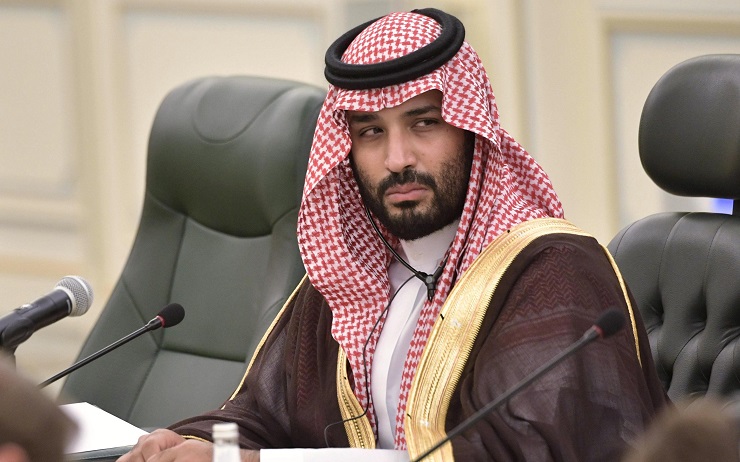In a recently held regional security conference in Bahrain, something unusual happened: Saudi representative went on to criticize Israel and linked Saudia-Israel normalization with the resolution of the Palestinian question. This has largely been seen as a set-back to the smooth going normalization process between Israel and the Gulf states. The UAE and Bahrain (and Sudan) have already recognized Israel. It is expected that the Saudis are would be the next. The impression received a major boost when Israeli officials leaked the news of a secret meeting between Saudia’s Muhammad bin Salman (MBS) and Israel’s Netanyahu. It looked obvious that the two states were well on their way to announcing a ‘peace deal.’ Its prospects, however, have changed in the wake of Prince Turki Al-Faisal’s remarks at the regional security conference in Bahrain. Many believe that the Saudis are backing away; others think that Faisal, who is close to King Salman, deliberately criticized Israel on behalf of the King, who is not happy with his son’s normalization approach. With some analysts going as far as to suggest that Israel is triggering a ‘civil war’ in Saudi Arabia.
That Saudi Arabia is backing away or Israel is triggering a ‘civil war’ between the father and the son appear too far-fetched from what the Saudis are actually doing. To begin with, secret relations between Israel and the Gulf states, including Saudia, are not new. The Abraham Accords are, in fact, only a culmination of the secret ties that these states had been developing for past many years. Why would Saudi Arabia, who is still keeping it secret, back away from it now? Why would King Salman get in a disagreement with his son over an issue that has been in the royal palaces for quite some time already?
An answer to these questions lies in the fact that the Saudis are neither backing away from the normalization process, nor is there a ‘Royal civil war’ in Saudia. The Saudis are just buying some time before they normalize relations with Israel. A Saudi recognition of Israel will be nothing short of a cataclysmic event, one that could trigger massive anti-Saudi waves across the Muslim word, eroding the prestige that Saudia holds as the centre of the Muslim world; hence, the necessity of having more countries recognise Israel first.
The Saudis have accordingly been pressuring other powerful Muslim states to follow the UAE, Bahrain, and Sudan. Pakistani officials recently confirmed, without naming any country, that they are facing pressure to recognise Israel and establish diplomatic relations. There is no gainsaying that no other state could put such pressure on Pakistan than the Saudis and the UAE.
Pakistan, for decades, has been subjected to the Saudi lead of covert relations with Israel. Since early 2000s, some former Pakistani diplomats have confirmed, there has been a consistent pressure on Pakistan by some Gulf states to establish indirect relations with Israel. It was yet again confirmed by Pakistan’s Prime Minister himself when he said in a recent interview that he was “under pressure” from some “friendly countries” to recognize Israel but that Pakistan would not budge until the Israel-Palestinian issue was resolved.
It is quite reasonable to believe that Pakistani PM would not mention this “pressure” if it was coming from an ordinary friendly state. Only Saudi Arabia and the UAE have that clout because of periodic financial assistance they provide to Pakistan to manage its perennial economic crisis, and because of the presence of hundreds of thousands of Pakistan workers in these countries, who are Pakistan’s biggest source of foreign remittances.
If there was a ‘civil war’ in Saudi Arabi and the Kingdom was backing away from the normalization process, they wouldn’t have put pressure on Pakistan to recognize Israel. Instead, they would have used countries like Pakistan to demonize the whole process.
This hasn’t happened because the path to normalization remains very much open. Both King Salman and MBS, too, remain close. It remains that both father and son have been able to come out of many crisis situations that the Kingdom has faced in past few years, including the devastating war in Yemen [an MBS adventure], attacks inside Saudia on its oil facilities [because of the war in Yemen], the murder of Jamal Khashoggi inside Saudi consulate in Turkey and the Gulf crisis [boycott of Qatar] and extremely bad relations with Turkey.
For both MBS and King Salman, the imperative remains normalization with Israel in a way that does them minimum damage. A dozen other Muslim countries recognizing Israel will ‘normalise’ Saudi recognition of Israel and insulate it against any criticism and internal upheavals.
Recognition and normalization remains important for the Saudis also because of the fact that both Saudia and Israel no longer have that ally in the White House who could actually hold Iran and even attack it. Both Saudia and Israel, therefore, need each other. At the same time, Joe Biden has already said that his administration will reverse much of Trump’s appeasement of Saudi Arabia and his hostile policies towards Iran. This reversal would affect the Saudis as much as the Israelis; hence, the underlying logic of their at least a decade old secret relations remains very much alive.
The Saudis are, therefore, not backing away; they appear to be making small adjustments and slowing down the pace of the process to normalise the matter at popular level. In other words, their strategy is allowing the Abraham Accords to sink in across the Muslim world before they take any potential step forward.
Salman Rafi Sheikh, research-analyst of International Relations and Pakistan’s foreign and domestic affairs, exclusively for the online magazine “New Eastern Outlook”.

